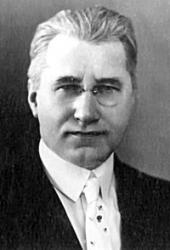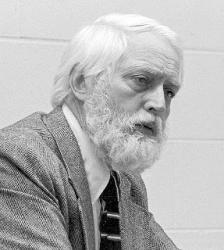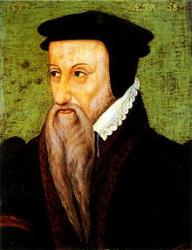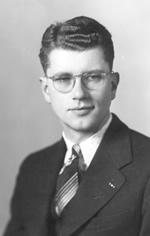Planning worship?
Check out our sister site, ZeteoSearch.org,
for 20+ additional resources related to your search.
- |
User Links
Person Results
Louis Bourgeois
1510 - 1561 Composer of "GENEVAN 65" Louis Bourgeois (b. Paris, France, c. 1510; d. Paris, 1561). In both his early and later years Bourgeois wrote French songs to entertain the rich, but in the history of church music he is known especially for his contribution to the Genevan Psalter. Apparently moving to Geneva in 1541, the same year John Calvin returned to Geneva from Strasbourg, Bourgeois served as cantor and master of the choristers at both St. Pierre and St. Gervais, which is to say he was music director there under the pastoral leadership of Calvin. Bourgeois used the choristers to teach the new psalm tunes to the congregation.
The extent of Bourgeois's involvement in the Genevan Psalter is a matter of scholarly debate. Calvin had published several partial psalters, including one in Strasbourg in 1539 and another in Geneva in 1542, with melodies by unknown composers. In 1551 another French psalter appeared in Geneva, Eighty-three Psalms of David, with texts by Marot and de Beze, and with most of the melodies by Bourgeois, who supplied thirty four original tunes and thirty-six revisions of older tunes. This edition was republished repeatedly, and later Bourgeois's tunes were incorporated into the complete Genevan Psalter (1562). However, his revision of some older tunes was not uniformly appreciated by those who were familiar with the original versions; he was actually imprisoned overnight for some of his musical arrangements but freed after Calvin's intervention. In addition to his contribution to the 1551 Psalter, Bourgeois produced a four-part harmonization of fifty psalms, published in Lyons (1547, enlarged 1554), and wrote a textbook on singing and sight-reading, La Droit Chemin de Musique (1550). He left Geneva in 1552 and lived in Lyons and Paris for the remainder of his life.
Bert Polman
Louis Bourgeois
Claude Goudimel

1514 - 1572 Harmonizer of "GENEVAN 65" in Trinity Psalter Hymnal The music of Claude Goudimel (b. Besançon, France, c. 1505; d. Lyons, France, 1572) was first published in Paris, and by 1551 he was composing harmonizations for some Genevan psalm tunes-initially for use by both Roman Catholics and Protestants. He became a Calvinist in 1557 while living in the Huguenot community in Metz. When the complete Genevan Psalter with its unison melodies was published in 1562, Goudimel began to compose various polyphonic settings of all the Genevan tunes. He actually composed three complete harmonizations of the Genevan Psalter, usually with the tune in the tenor part: simple hymn-style settings (1564), slightly more complicated harmonizations (1565), and quite elaborate, motet-like settings (1565-1566). The various Goudimel settings became popular throughout Calvinist Europe, both for domestic singing and later for use as organ harmonizations in church. Goudimel was one of the victims of the St. Bartholomew's Day massacre of Huguenots, which occurred throughout France.
Bert Polman
Claude Goudimel
Dale Grotenhuis
1931 - 2012 Harmonizer of "GENEVAN 65" in Psalter Hymnal (Gray) Dale Grotenhuis (b. Cedar Grove, WI, 1931; d. Jenison, Mi, August 17, 2012) was a member of the 1987 Psalter Hymnal 1987 Revision Committee, and was professor of music and director of choral music at Dordt College, Sioux Center, Iowa, from 1960 until he retired in 1994 to concentrate on composition. Educated at Calvin College; Michigan State University, Lansing; and Ohio State University, Columbus; he combined teaching with composition throughout his career and was a widely published composer of choral music. He also directed the Dordt choir in a large number of recordings, including many psalm arrangements found in the 1959 edition of the Psalter Hymnal.
Before coming to Dordt, Grotenhuis taught music at Christian high schools in Washington and Michigan. Under his direction, the Dordt College concert choir participated in annual tours that took members throughout the United States, Canada and Europe. He loved the church and the music of the church. His favorite song was "All Glory Be to God on High".
Bert Polman (last two sentences from Joy Grotenhuis, daughter-in-law)
Dale Grotenhuis
William Kuipers

1883 - 1933 Person Name: Rev. William Kuipers Versifier of "Forth from Thy Courts, Thy Sacred Dwelling" in Psalter Hymnal (Red) Born: 1883, Rochester, New York.
Died: 1933, Passaic, New Jersey.
Buried: Restlawn Cemetery, Grand Rapids, Michigan.
Kuipers emigrated from Friesland to America, in the late 1880s, graduated from Calvin College, Grand Rapids, Michigan, and was ordained in the Christian Reformed Church. He served at the Second Christian Reformed Church of Fremont, Michigan (1914-19); Christian Reformed churches in Oakland, Michigan (1919-23); Dennis Avenue, Grand Rapids, Michigan (1923-27); and Summer Street, Passaic, New Jersey (1927-33). He wrote a number of poems, hymns, and psalm versifications.
© The Cyber Hymnal™ (hymntime.com/tch)
William Kuipers
Stanley M. Wiersma

1930 - 1986 Person Name: Stanley Wiersma Versifier of "Praise Is Your Right, O God, in Zion" in Psalter Hymnal (Gray) Pseudonym: Sietze Buning
**********
Stanley Marvin Wiersma (b. Orange City, IA, 1930; d. Amsterdam, the Netherlands, 1986) was a poet and professor of English at Calvin College, Grand Rapids, Michigan, from 1959 until his sudden death in 1986. He attended Calvin as an undergraduate and received a Ph.D. from the University of Wisconsin in 1959. His love for the Genevan psalms is reflected in the two books of poetry for which he is most widely known: Purpaleanie and Other Permutations (1978) and Style and Class (1982), both written under the pseudonym Sietze Buning. He also wrote More Than the Ear Discovers: God in the Plays of Christopher Fry and translated many Dutch poems and hymn texts into English, including the children's hymns published in All Will Be New (1982).
Bert Polman
Stanley M. Wiersma
Théodore de Bèze

1519 - 1605 Author of "Salmos 65–Nuestra alabanza, Dios, aceptas" in El Himnario Bèze, Théodore de, born at Vezelay, in Burgundy, 1519; died 1605. Bèze’s father was of noble birth. He occupied the post of bailiff at Vezelay. Bèza received a first-rate classical education under Melchior Wolmar. Before he was 20 he wrote some poetry in imitation of Catullus and Ovid, the licentiousness of which he mourned and condemned in alter years. A brilliant prospect of Church emoluments turned his attention from the distasteful study of law. The income of the Priory of Longjumeau made him rich, and he became a prominent member of the literary world at Paris. But his entrance into Orders was barred by a secret marriage with Claudine Denosse. Subsequently, when the offer of the abbey of Froidmont by his uncle made it necessary for him to decide between avowing his marriage and renouncing the prospect, or repudiating his wife, he decided, under the solemn conversion produced by a dangerous illness, to abandon the Roman Church, and break with his whole past life. He left for Geneva (1548), and there publicly married. His first scheme for a living was to join his old comrade Jean Crespin, then at Geneva, in printing; but his appointment to the Professorship of Greek at Lausanne (1549), left the printing office in the hands of Crespin. Before his departure fiom Geneva ho had been on intimate terms with Calvin; and the discovery of a metrical rendering of Ps. 16 on Beza's table at Geneva led Calvin to suggest to him the completion of Marot's Psalms. At Lausanne he became a friend of Viret. He stayed there ten years, during which he wrote a tragi-comedy, and 40 of his metrical Psalms (36 published in 1551, 6 more in 1554). He had whilst at Lausanne a narrow escape from death by the plague. In 1557 he went with Karel and Budams to ask for the intercession of the German Protestant Princes in behalf of the persecuted Hugue-nots, and had interviews with Melanchthon. In 1559 he was appointed pastor at Geneva, Assistant Professor of Theology to Calvin, and the first Rector of the newly founded College of Geneva. With Peter Martyr and others he represented the Huguenots in the conference with the Queen-Mother and Cardinal Lorraine, at Poissy (1561), and remained at Paris nearly two years afterwards. His French metrical Psalter, in continuation of Marot, was completed in 1562. Calvin's death, 1564, left Beza the foremost figure at Geneva. In 1571, at the summons of the King of Navarre, he presided at the Synod of the Reformed Churches at Rochelle; and again (1572) at Nismes. His wife died in 1588, and he married again soon afterwards. His public life, as a theologian, a preacher, and administrator, ceased about 1598, though he preached again for the last time in 1600. He was honoured till his death; only three years before which the Landgrave of Hesse visited him, when passing through Geneva. The works of Beza are very numerous. As a controversialist, a commentator, an investigator of the text of the New Testament, he occupied a high place in his time. Among his chief works are: Annotationes in N. T.., 1556; Novum Testamentum, 1556; Psalms, with paraphrase in Latin, 1579; Life of Calvin, 1563. [Rev. H. Leigh Bennett, M.A.]
-- John Julian, Dictionary of Hymnology (1907)
Théodore de Bèze
Henry A. Bruinsma

1916 - 1991 Harmonizer of "ZION'S PRAISE" in Psalter Hymnal (Blue) It was in Bruinsma's musical compositions that his brilliance was most displayed. “Henry’s personality was … embodied in his music: colorful, radiating charisma, magnetic in a nonverbal way,” niece Jane DeGroot said.
Bruinsma displayed musical potential even before he was considered old enough to take music lessons, said his wife, Grace Hekman Bruinsma. The preschooler would eavesdrop on his older brother’s piano lessons. After the teacher left, Bruinsma would climb onto the piano bench to practice his brother’s lesson assignment. Later on, he chose to attend Ottawa Hills High School in Grand Rapids, Mich., for its music program.
Following high school graduation in 1933, Bruinsma attended the University of Michigan for a degree in music. He stayed on to complete a Ph.D. in musicology, becoming the first musicologist to graduate from the University of Michigan. It was during his graduate work that Bruinsma wrote Scherzo on a Dutch Nursery Song. “He never lost his love for Dutch history or Dutch Reformed music,” Grace Bruinsma said.
It was also during his time at U of M that Bruinsma began taking Grace to music concerts, and in 1939 they were married.
Bruinsma began his time as a professor of music at Calvin College (1946-55). In addition to his teaching duties at the college, Bruinsma taught the first music and theology course at Calvin Seminary. He also chaired the first Conference on Liturgy of Music.
However, not long after his time at Calvin, Bruinsma decided he was being called to move from teaching to education administration. Of note is his time at Ohio State University (1959-64), where he served as the director of the School of Music. He also held the position of executive committee member of the College of Education.
Next, Bruinsma moved to what is now Arizona State University (1964-79), another notable mark in his education administration career. During that time, he served first as chair of the School of Music, then as founding dean of the College of Fine Arts. He is also known to have started the first religious studies program at Arizona State as part of the university’s interdisciplinary studies program.
Due to the amount of time he spent in education administration, much of Bruinsma’s musical compositions were never published. After his death, Grace Bruinsma contacted Gerry Bouma of Morningside College in Sioux City, Iowa. Bouma and Henry Bruinsma had met in 1969 at a Grand Rapids Christian High School concert in Chicago. “For whatever reason, Henry and Grace treated us like we were their kids,” Bouma said. Grace asked Bouma to catalog and publish the 10,000 pages of Henry’s material. Taking a semester sabbatical, Bouma began his work.
Bouma’s catalog of Bruinsma’s work can be found in the Heritage Hall Archives at the Hekman Library, Calvin College. The Archives also hosts additional works from Bruinsma’s time at Calvin.
--Excerpted from Calvin Spark, Spring 2006 issue
Henry A. Bruinsma
Albert Szenczi Molnár
1574 - 1634 Person Name: A. Szenczi Molnár Author of "On Zion's Mount (A Sionnak hegyén)" in Little Psalterium Hungarian Protestant theologian
Albert Szenczi Molnár
I. J. de Ribeiro
Translator of "Salmos 65–Nuestra alabanza, Dios, aceptas" in El Himnario
I. J. de Ribeiro
Valentin Conrart
1603 - 1675 Person Name: Valentin Conrart, 1603-1675 Author of "Nuestra Alabanza, Dios, Acepta" in Cántico Nuevo
Valentin Conrart


 My Starred Hymns
My Starred Hymns


